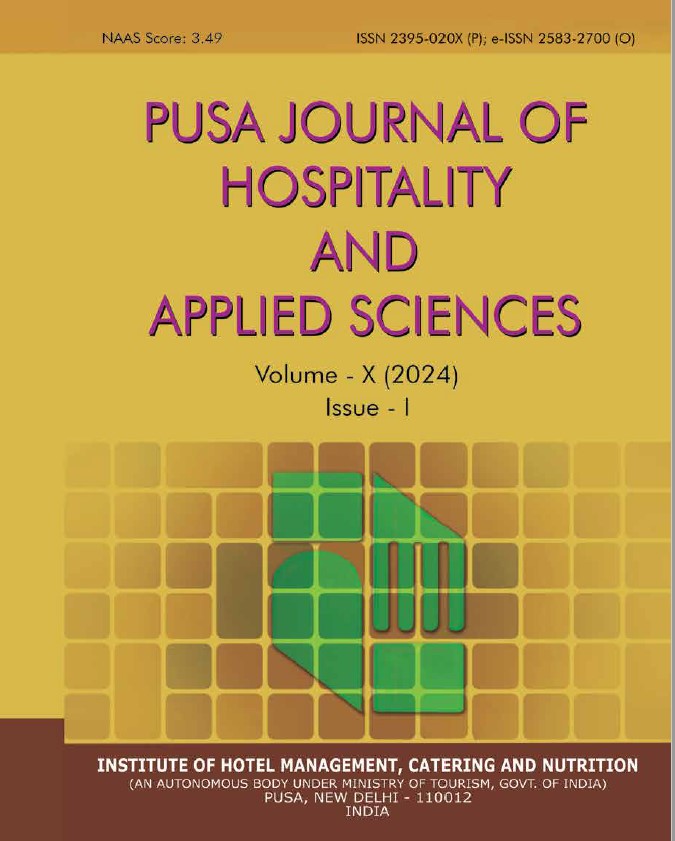Nutritional Status Assessment Through Subjective Global Assessment Tool Of Patients Undergoing Hemodialysis
Keywords:
Haemodialysis, SGA Tool, Dietary Recall, Nutrition, Chronic Kidney DiseasesAbstract
Background: Lifestyle diseases namely Diabetes Mellitus, Hyperlipidemia, Hypertension, can lead to life threatening condition known as Chronic Kidney Disease (CKD). It is a condition in which the kidneys are no longer able to maintain the normal composition of blood and renal function get completely hampered. Nearly ten percent of India’s 1.24 billion people suffer from Chronic Kidney Disease, a disease in which the kidney slowly loses function and fails. Objective: The present study was conducted to screen dialysis patients for the prevalence of malnutrition during their stay in hospital through a tool namely Subjective Global Assessment (SGA). Methodology: SGA is a tool for screening malnutrition in a wide variety of health care setting. It is a valid and clinically useful measure of protein-energy nutritional status in maintenance dialysis patients. The study was carried out on 60 adults with minimum age of 18years. Results: Nutritional status assessments of patients on Haemodialysis using SGA Tool were found to be moderately malnourished (89%), 10% are severely malnourished and remaining was well nourished. Conclusion: It was concluded that the cause behind the poor nutritional status of majority is multi-factorial. The patients irrespective of age and gender were not able to meet their nutrient requirement as per the Guidelines for Maintenance Haemodialysis in India. India’s CKD problems have reached epidemic proportions, thus it is suggested that emphasis on nutrition counselling of such patients is very important to sustain a better livelihood.
References
Chazot, C.,Guy, L., Bernard, C.B., Cyril, V .V., Guillaume, J., Thiery, V., Jean, C. T., & Martial R., (2001). Malnutirion in long term hemodialysis survivors, Nephrology Dialysis Transplant, (16), 61-69.
Pusa Journal of Hospitality and Applied Science
ISSN 2395 - 020X
Cupisti, A., D’Alessandro, C., Valeri, A., Capitanini, A., Meola, M.B., & Barsotti, G., (2010). Food intake and nutritional status in stable hemodialysis patients. Renal Failure, January ,32(1), 47-54.
Desbrow, B., Bauer, J., Blum C., Kandasamy, A., McDonald, A. & Montgomery, K. (2005). Assessment of nutritional status in hemodialysis patients using patient-generated subjective global assessment. Journal of Renal Nutrition, 15(2), 211-216.
Dewar, D., Soyibo, A.K., & Barton, E.N. (2012). Nutritional markers in patients undergoing chronic haemodialysis in Jamaica. West Indian Medical Journal. June, 61(3), 284-9.
Jones, J.M. (2002). The methodology of nutrition screening and assessment tools. Journal Hum Nutrition Diet. 15, 59-71.
Khanna, K., Gupta, S., Passi, S.J., Sethi, R., Mahana, R., & Puri, S. (2005). Nutrition and Dietitics. Elite Publishing.
Kondrup, J., Rasmussen, H.H., & Hamber, O. (2003). Nutritional risk screening: a new method based on an analysis of controlled clinical trials. Clinical Nutrition. 22(3), 321-336.
Malekmakan, L., Haghpanah, S., Pakfetrat, M., Malekmakan, A., & Khajehdehi, P. (2009) Causes of chronic renal failure among Iranian hemodialysis patients. Saudi Journal of Kidney Dialysis Transplant. May, 20(3), 501-4.
Mutsert, D. R., Grootendorst, D.C., Boeschoten, E.W., Brandts, H., Van Manen, J.G., Krediet, R.T., & Dekker, F.W. (2009) Netherlands Cooperative Study on the Adequacy of Dialysis-2 Study Group. American Journal Clinical Nutrition. March, 89(3), 787-93.
Oliveira, G.T., Andrade, E.I., Acurcio, F.A, Cherchiglia, M.L., & Correia, M.I.(2012) Nutritional assessment of patients undergoing hemodialysis at dialysis centers in Belo Horizonte, MG, Brazil. April, 58(2), 240-7.
Piratelli, C.M., & Rodolpho, T. J. (2012). Nutritional Evaluation of Stage 5 Chronic Kidney Disease Patients On Dialysis. Sao Paulo Medical Journal. 130 (6).
Registrar General and Census Commissioner, (2011) Ministry of Home Affairs, Government of India, New Delhi.
Salahudeen, A.K. (2003). Obesity and survival on dialysis. Am J Kidney Dis. 41: 925–932.
Saran, A. K., Elsayed, S., Molhem, A., Aldrees, A., & Alzara, H. (2011) Nutritional assessment of patients on hemodialysis in a large dialysis center. Saudi Journal Kidney Dis Transplant. July, 22(4):675-81.
Shirodkar, M., & Mohandas, K.M. (2005) Subjective Global Assessment: Screening Tool for Malnutrition. Indian Journal of Gastroenterology. Nov-Dec,24(6):246-50.
Strid, H., Magnus, S., Ann Cathrine, J., Jan, S., Ola, S., & Einar, S.B. (2002). The prevalence of gastrointestinal symptoms in patients with chronic renal failure is increased and associated with impaired psychological general well being. Nephrology Dialysis Transplant.17 (8): 1434-1439.
Sahin, H., Ýnanç, N., Katrancý, D., & Aslan, N.O. (2009). Is there a correlation between subjective global assessment and food intake, anthropometric measurement and biochemical parameters in nutritional assessment of haemodialysis patients?. Pak J Med Sci. 25(2):201-206.
Suman, S., Malagi, U., Rama, K., & Kasturiba, B. (2007). The Nutritional Status of Predialytic and Hemodialytic patients, The Indian Nutrition of Dietetics. 44,447.
Tayyem, R.F., Mrayyan, M.T., Heath, D.D., & Bawadi, H.A. (2008). Assessment of nutritional status among ESRD patients in Jordanian hospitals. Journal of Renal Nutrition. 18(3), 281-287.
Yang, F.L., Lee, R.P., Wang, C.H., Fang, T.C. & Hsu, B.G.(2007). A cohort study of subjective global assessment and mortality in Taiwanese hemodialysis patients. Renal Failure 29(8), 997- 1001.
Zimmerer, J.L., Leon, J.B., Covinsky, K.E., Desai, U., & Sehgal, A.R. (2003). Diet monotony as a correlate of poor nutritional intake among hemodialysis patients. Jornal of Renal Nutrition. April, 13(2), 72-78.




